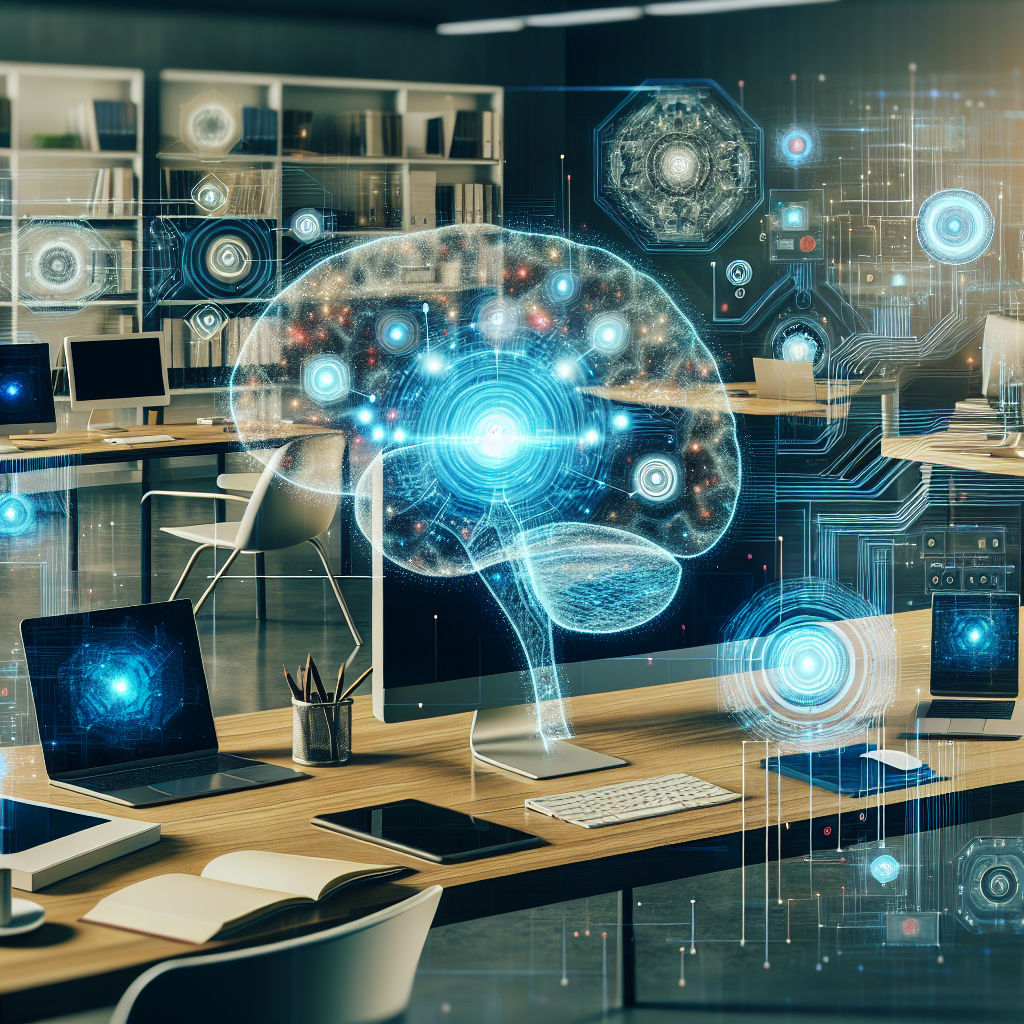Artificial General Intelligence (AGI) is a term that refers to machines that possess the ability to understand, learn, and apply knowledge in a manner similar to human intelligence. While current AI technologies are limited in scope and ability, AGI has the potential to revolutionize the workplace and impact the future of jobs in significant ways.
In this article, we will explore the implications of AGI in the workplace, how it will impact various industries, and address common questions and concerns surrounding this emerging technology.
The Impact of AGI on the Workplace
AGI has the potential to automate a wide range of tasks and processes that are currently performed by humans. This includes tasks that require complex decision-making, creativity, and problem-solving skills. As AGI continues to advance, it is likely that many jobs will be automated, leading to significant changes in the workforce.
One of the key benefits of AGI in the workplace is increased efficiency and productivity. Machines equipped with AGI can perform tasks at a much faster rate than humans, leading to cost savings and improved output. This can free up human workers to focus on more strategic and creative tasks, leading to a more dynamic and innovative workplace.
However, the widespread adoption of AGI also raises concerns about job displacement and the impact on employment. As machines become more capable of performing a wide range of tasks, there is a risk that many jobs could be eliminated or significantly altered. This could result in widespread job loss and economic disruption, particularly in industries that rely heavily on manual labor or routine tasks.
On the other hand, AGI also has the potential to create new job opportunities and industries. As machines take on more routine tasks, human workers can focus on roles that require emotional intelligence, creativity, and critical thinking skills. This could lead to the emergence of new roles in areas such as data analysis, machine learning, and AI ethics.
Overall, the impact of AGI on the workplace will depend on how effectively organizations and policymakers manage the transition to this new technology. It will be important to invest in reskilling and upskilling programs to help workers adapt to the changing demands of the workforce. Additionally, ethical considerations around the use of AGI in the workplace will need to be carefully considered to ensure that the technology is used responsibly and in a way that benefits society as a whole.
AGI in Different Industries
The impact of AGI on the workplace will vary depending on the industry. Here are some examples of how AGI could impact different sectors:
1. Manufacturing: AGI has the potential to revolutionize the manufacturing industry by automating production processes and improving efficiency. Machines equipped with AGI can optimize production schedules, monitor equipment performance, and identify potential issues before they occur. This could lead to cost savings, improved quality control, and increased output.
2. Healthcare: AGI could revolutionize the healthcare industry by improving diagnostic accuracy, personalized treatment plans, and patient outcomes. Machines equipped with AGI can analyze medical imaging scans, genetic data, and patient records to identify patterns and make treatment recommendations. This could lead to more efficient and effective healthcare delivery, as well as improved patient care.
3. Finance: AGI has the potential to transform the finance industry by automating tasks such as risk assessment, investment analysis, and fraud detection. Machines equipped with AGI can analyze vast amounts of financial data in real-time to make informed decisions and predictions. This could lead to more accurate risk management, improved investment strategies, and enhanced cybersecurity.
4. Retail: AGI could revolutionize the retail industry by personalizing customer experiences, optimizing inventory management, and streamlining supply chain operations. Machines equipped with AGI can analyze customer data, preferences, and buying behavior to offer personalized recommendations and promotions. This could lead to increased customer loyalty, higher sales, and improved operational efficiency.
FAQs about AGI in the Workplace
Q: Will AGI lead to widespread job loss?
A: While AGI has the potential to automate many tasks currently performed by humans, it is unlikely to lead to widespread job loss. Instead, AGI is more likely to lead to job displacement, where workers will need to adapt to new roles and responsibilities. Organizations and policymakers will need to invest in reskilling and upskilling programs to help workers transition to the new demands of the workforce.
Q: How will AGI impact job satisfaction and employee well-being?
A: AGI has the potential to improve job satisfaction and employee well-being by automating routine tasks and freeing up human workers to focus on more strategic and creative tasks. This could lead to a more fulfilling and engaging workplace, as well as opportunities for professional growth and development. However, organizations will need to carefully manage the transition to AGI to ensure that workers are supported and valued during this period of change.
Q: What ethical considerations should be taken into account when using AGI in the workplace?
A: There are several ethical considerations that organizations should take into account when using AGI in the workplace. These include issues around data privacy, transparency, bias, and accountability. Organizations should ensure that AGI systems are designed and implemented in a way that is fair, transparent, and accountable. Additionally, organizations should consider the impact of AGI on the workforce and society as a whole, and take steps to mitigate any potential negative consequences.
In conclusion, AGI has the potential to revolutionize the workplace and impact the future of jobs in significant ways. While there are concerns about job displacement and economic disruption, AGI also has the potential to create new job opportunities and industries. By investing in reskilling and upskilling programs, managing the transition to AGI responsibly, and considering ethical considerations, organizations can harness the full potential of this emerging technology and create a more dynamic and innovative workplace for the future.

